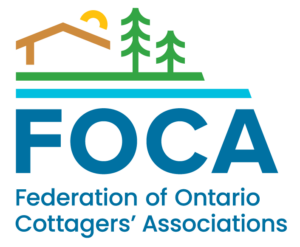
Municipal Governments provide valued public services and are our rural Ontario partners.
Municipal services include maintenance of many (but not all) local roads, garbage & sewage & water services, fire and public health services, planning and bylaws and permitting.
Read onward, or jump directly to more information about:
What if you don’t have a Municipality?
A local services board (LSB) is a volunteer organization that has the authority to deliver approved services to residents in rural areas of Northern Ontario where there is no municipal government. Learn more: https://www.ontario.ca/page/local-service-boards. Also, read a summary about LSBs (PDF, 1 page; 2022) from our member group, the Lake of the Woods District Stewardship Association.

October 19 to 25, 2025 is “Local Government Week” in Ontario. On behalf of FOCA’s member groups in more than 100 municipalities, we celebrate the important role of local government and the essential services it provides. As the Association of Municipalities of Ontario (AMO) said, “From tackling issues that communities care about most to providing clean drinking water and safe roads, to parks, public transit, and emergency services – local governments make it happen.” Access AMO’s online resources around who municipal governments do, engaging youth in local democracy, and more: https://www.amo.on.ca/policy/local-government-week-october-19-25-2025
In Ontario, the municipal level of government delivers some of our most prized public services. However, municipalities are also a creature of the Province, owing their very existence, their powers and obligations to the Province under the Municipal Act.
This level of government may be described as “municipal” (e.g., Town of Espanola; Township of Tay); “single-tier” – that is, certain cities that are geographically within a county, but are governed distinctly (e.g., City of Kawartha Lakes; City of Greater Sudbury); “upper-tier” – that is, a county or regional government (a federation of the local municipalities) that provides some municipal services (e.g., Bruce County); or “lower-tier” – that is, a municipality underneath an upper-tier government (e.g., Municipality of Northern Bruce Peninsula). The powers of municipal governments are determined by the provincial government.
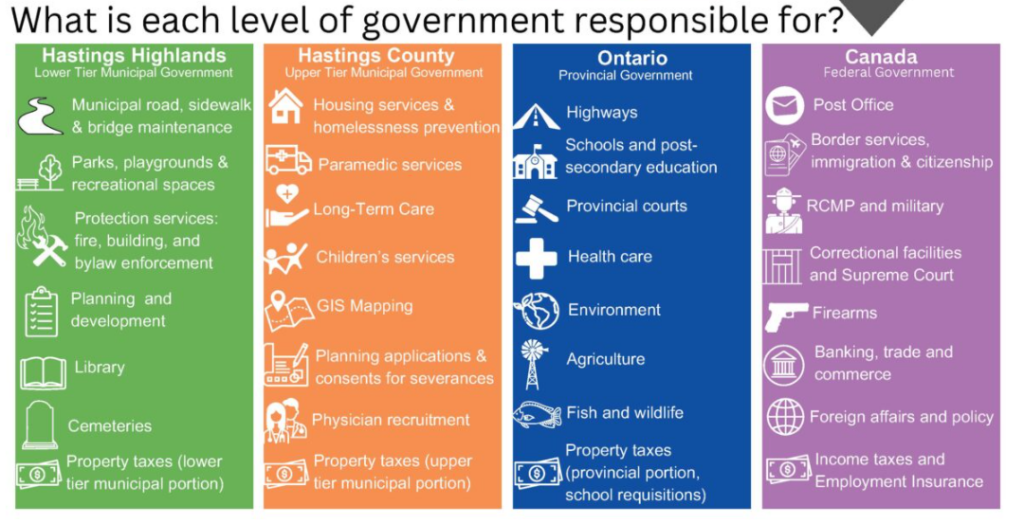
image above: this example from Hastings Highlands (2023) provides a visual overview of the different services provided by the federal, provincial, Upper and Lower Tier Municipal levels of government
For more, including links to municipal websites, visit the Association of Municipalities of Ontario. Also, for more about municipalities, review a slide presentation About Local Government (PDF, 53 slides) from 2016 by the Association of Municipal Managers, Clerks and Treasurers of Ontario.
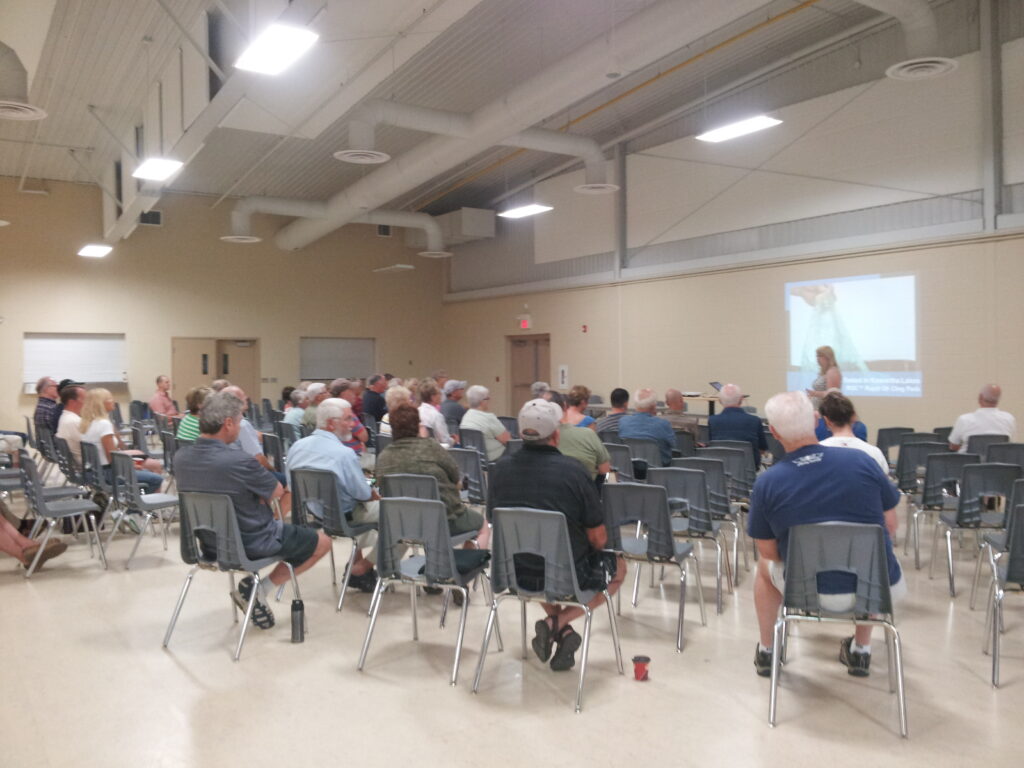
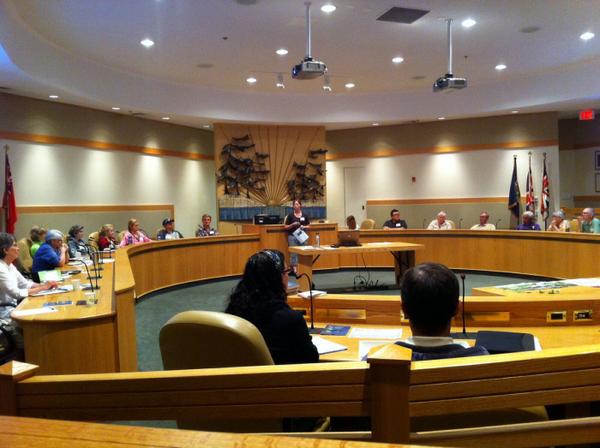

FOCA is the largest non-farm landowner group in rural Ontario, representing the 250,000 waterfront property-owning families across the province.
For our Municipal partners: FOCA’s 50,000 member families are YOUR rural residents, and thriving and sustainable rural communities are our common goal! We encourage you to:
- Read FOCA’s new Economic Impact report about the $11.44 billion annual contribution of waterfront property owners across Ontario.
- Download an overview About FOCA & our Municipal Partners (PDF, 2 pages).
- Sign up to receive the FOCA Elert (monthly e-news) for the pulse of cottage country, including quick policy updates & regional event notices. Got news to share with rural residents? Send it to FOCA.
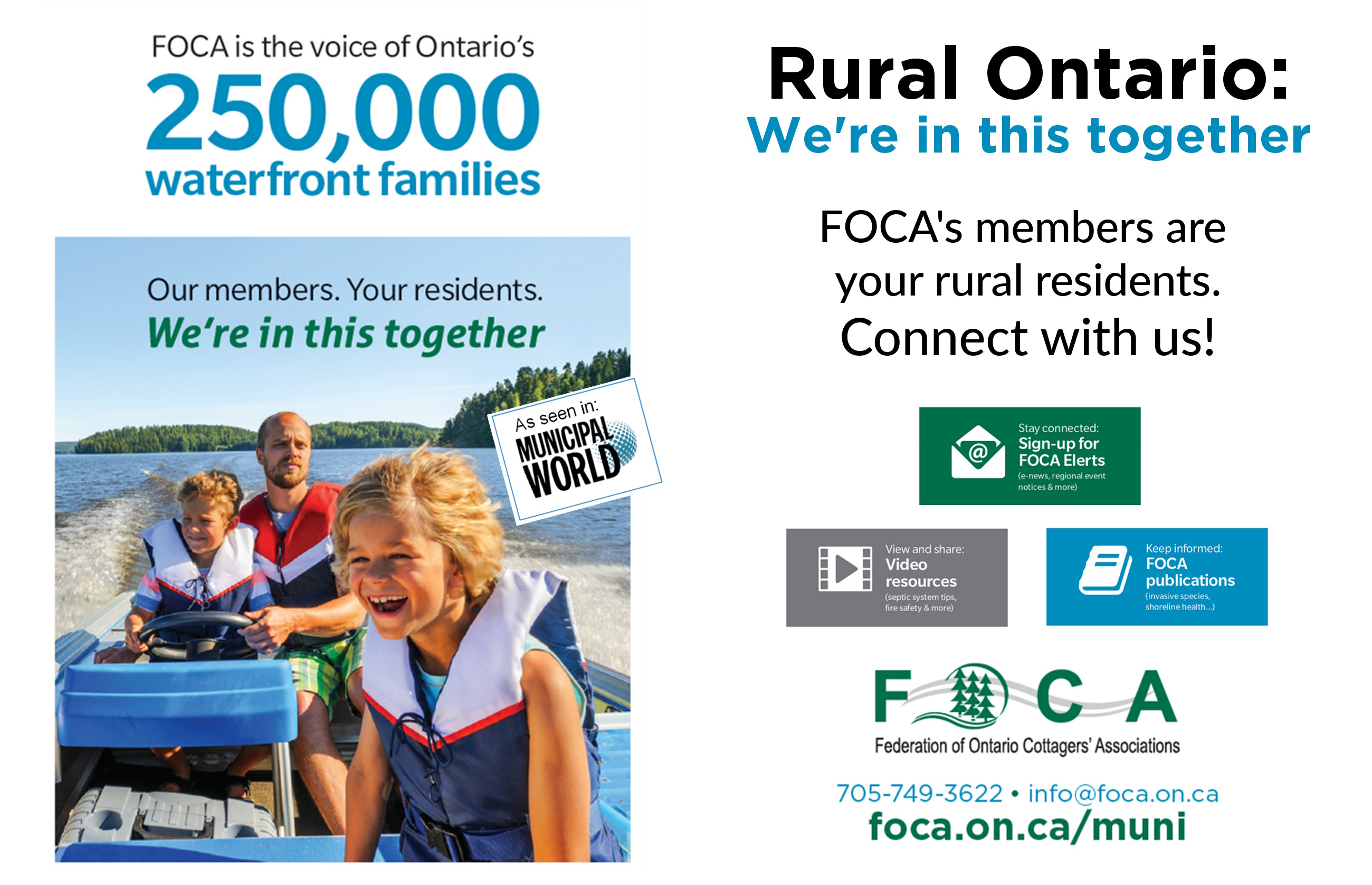
FOCA has print and digital resources for our municipal partners to circulate about: cottage country septic systems, healthy waterfronts, invasive species, lake planning, and much more.
You're missing members-only content!
The following resource - FOCA's Municipal Engagement Guide for Community Associations - is only available to our Member Associations.
If you are already registered on the FOCA website, please login below with your Username and Password.
Need help with your login? Contact us for assistance during business hours. Not yet a Member Association? Find out why you should be!
Vote for Your Future: Municipal Elections

FOCA encourages all waterfront property owners to participate in the democratic process at election time and throughout your representatives’ terms of office.
The most recent Ontario municipal elections took place on Monday, October 24, 2022. Review election results and vote statistics from the Association of Municipalities of Ontario.
Ontario Municipal elections happen in October every 4 years. The term of office for elected representatives is December 1st of that year to November 30th, four years later. (Current term: 2022 to 2026)
FOCA encourages permanent and seasonal waterfront property owners to get engaged in municipal elections. Learn who in your community best represents your position on the issues that mean the most to you and your family. Also, engage others in your waterfront community, and “get-out-the-vote” at election time.
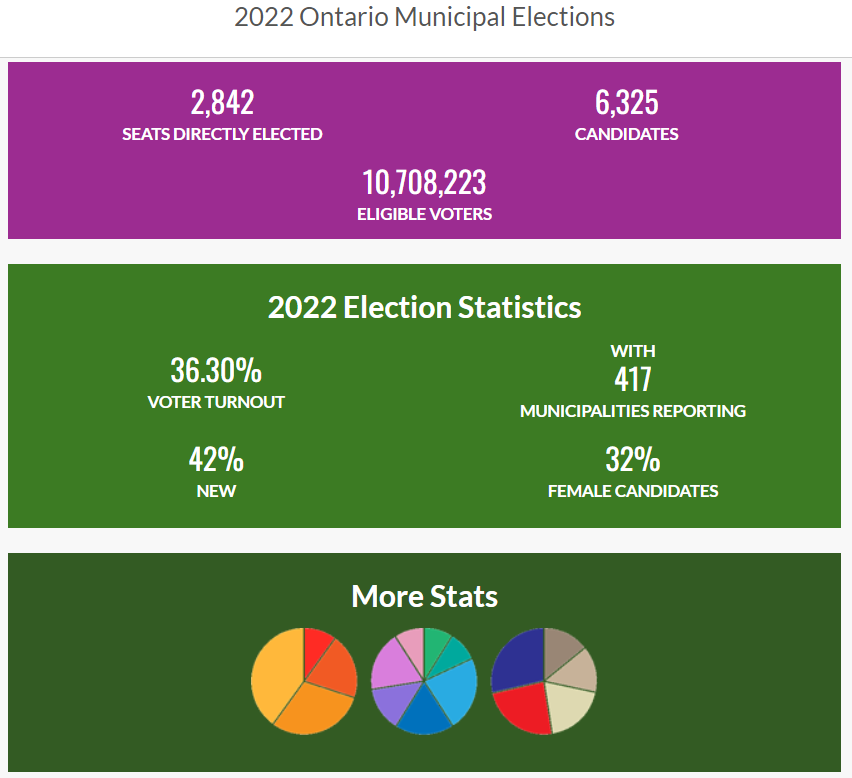
You're missing members-only content!
The following resources are only available to members of our Member Associations.
If you are already registered on the FOCA website, please login below with your Username and Password.
Need help with your login? Contact us for assistance during business hours. Not yet a Member Association? Find out why you should be!
Additional municipal election & engagement resources for everyone:
- Download a 2-page overview (PDF) from FOCA about municipal elections – a quick overview of what you need to know
- Download the ONN Election Toolkit (PDF, 2.3 MB) a guide for noprofits to meaningfully engage in elections. Although produced by the Ontario Nonprofit Network (ONN) for the Ontario provincial election in June 2022, this guide contains lots of great information about getting informed, creating an engagement strategy, and communicating with fellow community members, before and after the election.
- Watch a video about virtual municipal meeting from the Ontario Ombudsman (YouTube) – see around minute 12:00 onward for information about virtual meetings and the need to stay open and accessible.
- For more, visit: https://www.amo.on.ca/about-us/municipal-101/municipal-elections
Who can vote in a municipal election?
Anyone can vote in a municipal election who, on the day of the election, is:- 18 years of age or older;
- a Canadian citizen; and
- either a resident of the municipality or a property owner or tenant, or the spouse or same sex partner of an owner or tenant in the municipality, during a specified time just before the election.
Seasonal property owners: Where can you vote in a municipal election?
In Ontario municipal elections, you are entitled to vote where you own or rent property. Therefore, plan to vote at your cottage riding as well as your permanent residence. FAQ: “My family owns a cottage. Can I vote in that municipality?” In order to qualify as a non-resident elector, you (or your spouse) must be the owner or tenant of the property, or their spouse/common-law partner. If a family member who is not your spouse is the owner, even if you have use of the cottage, you would not qualify as a non-resident elector in that municipality. If the cottage is owned by a trust, you would not qualify as a non-resident elector.How can you vote?
Ask your municipality about the availability of advance polls or online voting. Now is the time to check on the options available to your association members for municipal voting in the next election (2026). Does your municipality offer online or phone options? The deadline to pass by-laws authorizing the use of alternative voting, such as by mail or by internet, and vote-counting equipment was May 1st, 2022 for the 2022 election. You can find many municipal election resources from the Ontario Ministry of Municipal Affairs and Housing, including election guides for voters and for candidates, as well as some information about voter identification requirements.How can you get involved in the municipal election?
- Ensure you are on the voter’s list! Visit voterlookup.ca
- Get on FOCA’s Elert list for cottage country updates on election issues.
- Host a local candidates’ event prior to the election. Ask your questions!
- Vote in your Municipal Election.
FOCA’s challenge to you:
Want to make a difference in your rural community? Do you have leadership skills? Think you have something to contribute to the local community? Consider running for municipal office! Local elections are often decided by only dozens or a few hundreds of votes. Think about all the services your municipal government is responsible for providing: roads, public transit, child care, local policing, water and sewers, ambulances, parks and recreation. Help to bring the focus onto the issues that matter most to you and to your lake association. We need more lake and river champions in municipal office, where they can stand up for healthy, thriving and sustainable communities. Keep FOCA updated if you decide to run for municipal office. Related Earlier News: 2022 – Thinking about running for one of Muskoka’s municipal councils? Do it! (MuskokaRegion.com) 2021 – Are you “election curious? Visit: Municipal Campaign School to plan to run for office and expand diversity in Ontario’s elected officials.Getting Involved in Municipal Budget Setting:
Some parts of Ontario have two lower- and upper-tier municipal governments, with separate budgets and separate budget processes.It is important we all understand the process for setting municipal budgets, and how we can get involved to help shape the future of our communities. Every year, municipal councils call public meetings early in the calendar year to get input and to review drafts of their revenue and spending plans. These meetings are a chance for residents to meet the Council, learn about the budgets and have a say in setting the municipalities priorities for the year(s) ahead. Public participation in the budget-setting process is important because a municipal budget is a policy and planning document that outlines the city’s priorities, and is always a balancing act between cost saving, and delivering a high level of services.There are usually 2 main components to a municipal budget:
- The operating budget covers the costs of maintaining services as libraries, recreational centres, parks, snow removal, road maintenance and municipal fire services.
- The capital budget is what the city sets aside to cover the costs of building and renewing our libraries, roads, parks, recreational centres, arenas, pools and seniors’ centres.
Three factors influence the amount of property taxes you pay:
(and your Municipality only has control over one of them):- the municipal property tax rate
- the assessed value of your property – determined by the Municipal Property Assessment Corporation
- the education tax rate – set by the Province.
Your Municipal Budget Explained:
The following is adapted from notes by Rachel Tyczinski, past Corporate Affairs Officer (now Clerk) of the Corporation of the City of Sault Ste. Marie
You're missing members-only content!
The following resources are only available to members of our Member Associations & current Friends of FOCA (our annual supporters).
If you are already registered on the FOCA website, please login below with your Username and Password.
Need help with your login? Contact us for assistance during business hours. Not yet a Member Association? Find out why you should be!

Please note: the following is archival material, and some links to third-party resources may no longer be active.
January 2023 – FOCA joined 1600 delegates at the annual Rural Ontario Municipal Association (ROMA) Conference. This year’s theme was Breaking New Ground, and included the opportunity to meet and hear from Ontario’s Cabinet, along with elected municipal officials and senior staffers. FOCA presented to a full room on the topic of short term rentals (STR) in rural Ontario. Learn more in FOCA’s recent STR report, posted to our webpage: https://foca.on.ca/rental/. (image above: the crowd at the STR session at ROMA 2023)
Important issues discussed at ROMA 2023 included land use planning, rural health care, electricity planning, affordable housing and more. FOCA met with our colleagues at Conservation Ontario, Hydro One, MPAC, Good Roads, Emergency Management Ontario and others.

January 2022 – FOCA was on hand at the virtual 2022 Rural Ontario Municipal Association (ROMA) Annual Conference for the unveiling of a new “Model of Innovation and Resilience” outlining opportunities for rural and Northern Ontario in a Post-COVID World. Among many recommendations for future success is that rural communities should develop deliberate strategies to help weave all residents (including cottagers) into the social, cultural and employment fabric of the community. Read the whole report, here: https://www.roma.on.ca/opportunities-rural-ontario-post-covid-world
November 2021 onward: Municipal partners – please take the FOCA/OGRA road survey – FOCA and our partners at the Ontario Good Roads Association (OGRA) are conducting a survey of municipal government partners to help quantify the extent of private roads across Ontario. Click here to take the survey. There is no hard end-date on the survey (we want to collect as much information as possible, and not exclude anyone!) but we’re hopeful to have as many responses as possible before end of the calendar year. Please ensure your municipality is included in the results!
October 9, 2018 – Muskoka Lakes Association responds to questions about their ‘Stance on Candidate Endorsement’ OPINION (Bracebridge Examiner)
October 11, 2018 – No contest: Why it matters when candidates run unopposed On municipal-election day, hundreds of candidates will win by acclamation in communities across Ontario — but what does that mean for democracy?
September 11, 2018 – Ottawa-area voters – Ontario Municipal Elections in our National Capital and Beyond (Ottawa Riverkeeper)
May 18, 2018 – FOCA releases the “Vote for your Future Toolkit” for Lake Associations! See details, above.
August 21, 2018 Why three elections in two years could mean a ‘lost year’ for municipalities (TVO)
March 25, 2018 – A civil election campaign is vital to encourage women in politics (Toronto Star)
March 6, 2018 – Candidates have less time to file for municipal election bid (Kingston Whig-Standard)
Environmental priorities in your municipality:
January 2016 – Official Plans (OP) are prepared by the municipal and/or regional government to direct and guide the local municipality (or County/District) in policy planning and physical planning on a very broad basis. An Official Plan has two basic functions:- It establishes a vision in which land use planning protects and enhances the local landscape, lifestyle and sense of community.
- Using a strategic approach to land use planning, the OP sets out the general direction for planning and development by prescribing strategic goals, objectives and policies.
Hamilton, ON 02-25-2015
Erin, ON 04-21-2015
Ajax, ON 04-23-2015
St. Joseph, ON 05-05-2015
King, ON 05-11-2015
Kitchener, ON 06-01-2015
Springwater, ON 06-01-2015
Waterloo Regional Municipality, ON 06-03-2015
Waterloo, ON 06-22-2015
Burlington, ON 07-13-2015
Wellesley, ON 07-13-2015
Kingston, ON 07-14-2015
Oakville, ON 07-20-2015
Muskoka Region, ON 07-20-2015
North Dumfries, ON 08-10-2015
Windsor, ON 08-24-2015
Wilmot, ON 08-31-2015
Brantford, ON 08-31-2015
Woolwich, ON 09-08-2015
Meaford, ON 09-16-2015
Guelph, ON 10-27-2015
Highlands East, ON 11-09-2015
Oshawa, ON 11-09-2015
Algonquin Highlands, ON 11-19-2015
Toronto, ON 12-09-2015
Milton, ON 12-14-2015
Stratford, ON 12-14-2015
Saugeen Shores, ON 12-14-2015
Dysart et al, ON 12-14-2015
